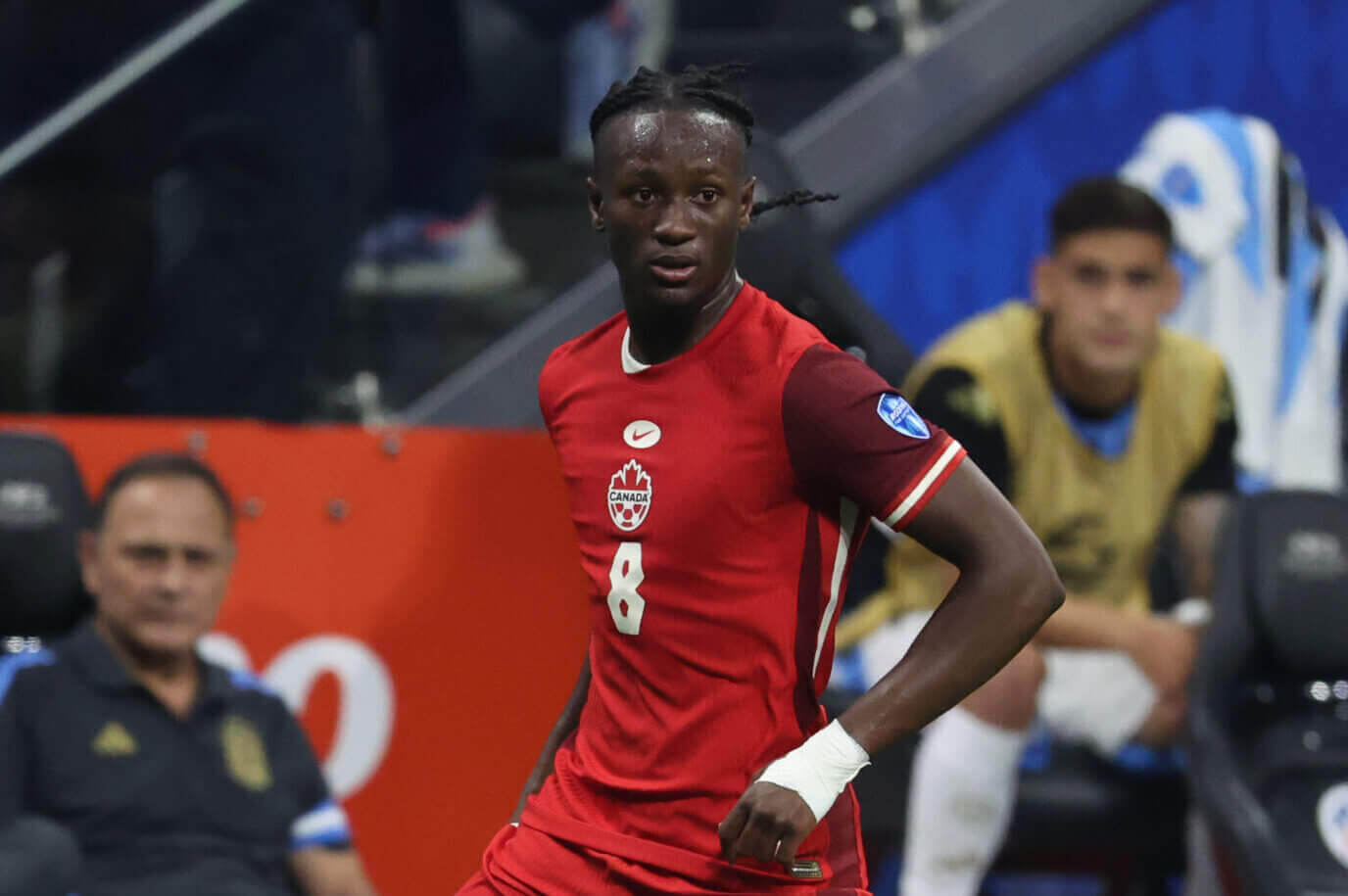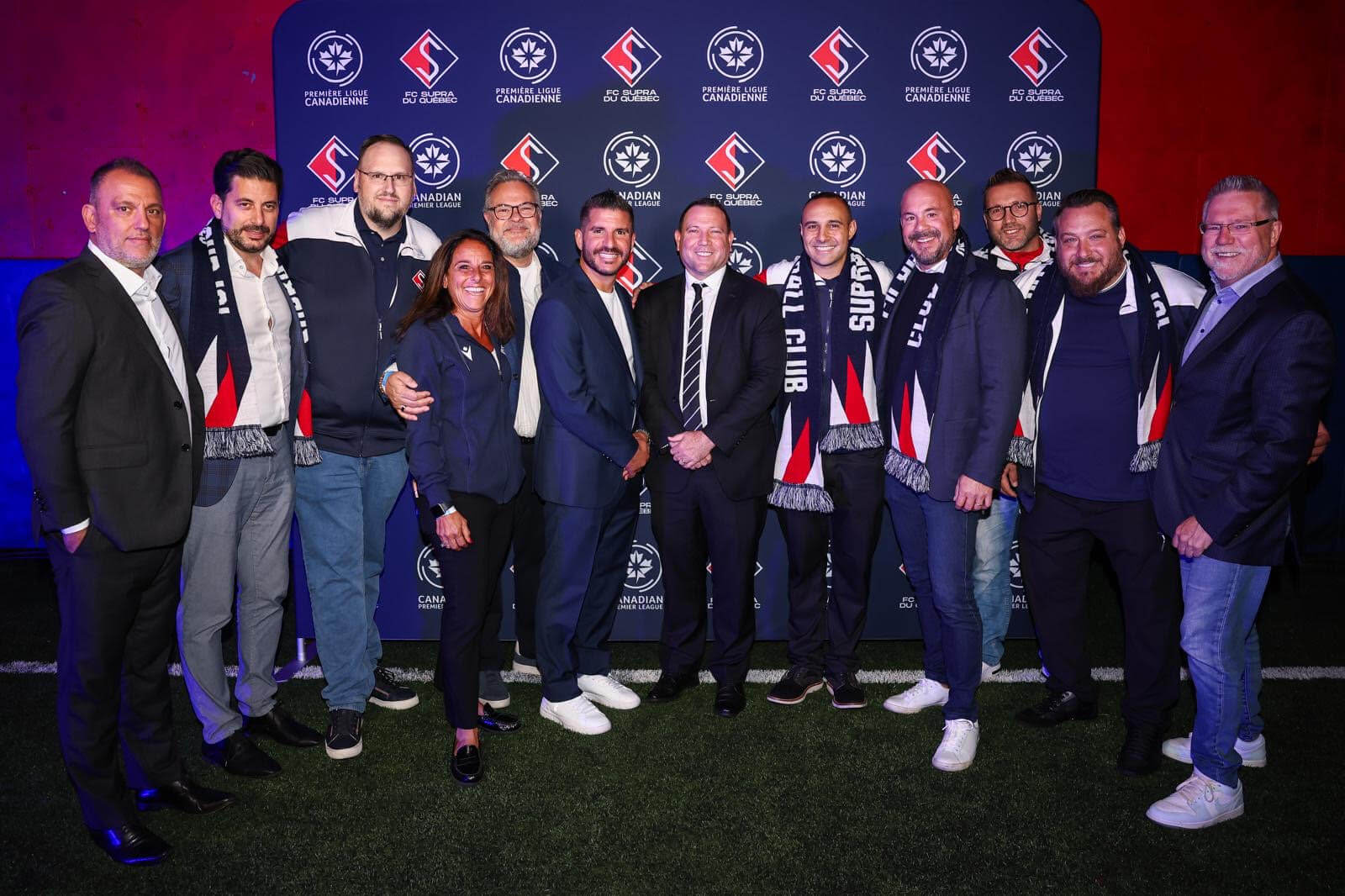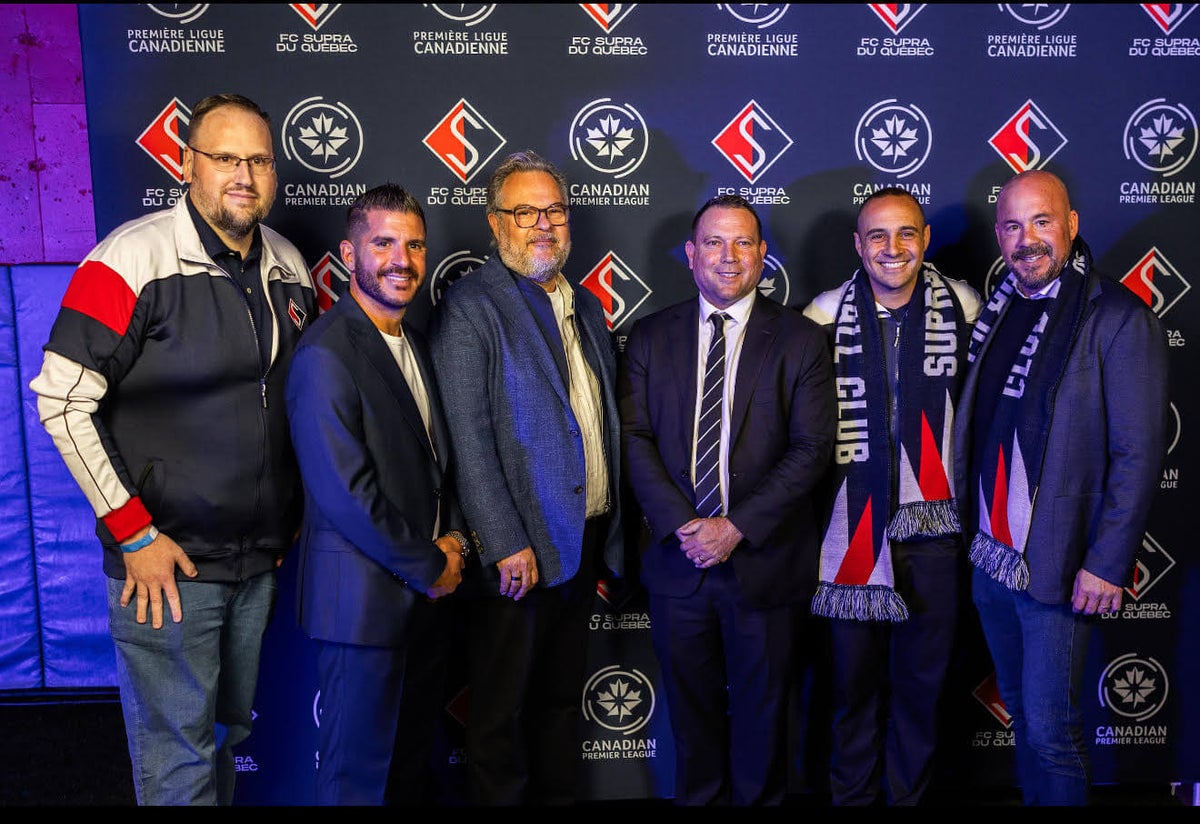“Un club d’ici, pour ici.”
Two things stand out from Supra du Quebec’s motto.
The newest Canadian Premier League (CPL) club, founded last month for the 2026 season kicking off in April, are the division’s first from Quebec: the only province among Canada’s 10 where French, not English, is the official language; and “A club from here, for here” is a sentiment associated with European soccer, where teams grew from their localities, rather than the franchise model which dominates North American sports.
“This club will exist to serve the players of this province,” Supra president Rocco Placentino told The Athletic. “We will be represented by players from Quebec, whether they were born here or live here. That is the same approach with coaching staff and upper management. It will be kept as local as possible.”
Placentino, 43, said Bilbao-based Athletic Club in Spain, who only select players from or trained in the Basque Country, were the “inspiration” for this model. He believes Quebec, with its 8.5 million inhabitants, is the perfect area for such a policy to thrive.

Supra president Rocco Placentino is a former Canada international. (Supra du Quebec)
Quebec has not historically provided many Canada internationals in soccer, but times have changed.
Goalkeeper Maxime Crepeau, 31, kept two clean sheets in last year’s Copa America as Canada made the semifinals, the versatile Mathieu Choiniere, 26, is a midfield regular, while Nathan Saliba, 21, is one of the nation’s brightest prospects and joined leading Belgian club Anderlecht this summer.
The region’s biggest standouts are 23-year-old midfielder Ismael Kone — on loan at Sassuolo in Italy from France’s Marseille — and defender Moise Bambito, 25, who has impressed for French club Nice.
CF Montreal (formerly Montreal Impact) play in MLS, but the CPL has not had a team in Quebec since its launch in 2019. Saliba and Kone were developed by Montreal, but the MLS side’s roster contains 16 different nationalities and first-team opportunities can be limited. “We see their presence as beneficial,” Placentino said. “MLS clubs have limited squad sizes and salary caps.”
Supra will, Placentino insists, offer a professional environment in a top division for local talent to be nurtured: “In Quebec, there are a lot of diamonds in the rough. There is so much raw talent here, but only one professional club, playing in a league where players from across the world come to.”

Ismael Kone is a Canada regular, having grown up in Montreal, Quebec. (Todd Kirkland / Getty Images)
While MLS has existed since the 1990s and includes Canada’s three most established soccer clubs — Montreal, the Vancouver Whitecaps and Toronto FC — the CPL is only in its seventh season, and Supra will be its ninth active club. Announcements on recruitment of players, coaching staff and a sporting director will follow in the coming weeks. There are around five months to get up to speed before next season starts.
Quebec — the second-largest Canadian province by population, and home to 23 percent of the nation’s people — not having a top-tier CPL team was an anomaly. There is a multi-tier semi-professional soccer league in the province, and in 2023, Quebec Soccer, the region’s governing body, said more than 170,000 people participated in soccer programmes that year.
Placentino argues that Supra, which will share Stade Boreale in the Montreal suburb of Laval with the women’s Northern Super League side the Montreal Roses, were “not a want, but a need” for Quebec: “This is a project we have worked on for more than four years. It was essential for our province to have a second professional club. When our place in the CPL was confirmed, we all thought — ‘Finally!’”
With room for 5,500 supporters, Stade Boreale provides a platform for the new club to build a fanbase. Telus Stadium — a 21,000-capacity venue also in Laval — and the 23,000-seat Percival Molson Memorial Stadium in downtown Montreal are existing potential long-term alternatives in the region.

Supra was confirmed as the CPL’s ninth club in September. (Supra du Quebec)
Placentino, a former Canada international who spent his playing career largely with Italian and Canadian clubs, including two years with the Montreal Impact, outlined how Supra’s plans were not just for a representative first team of local players: “After we launch, we will work to build a youth structure and a pathway from various levels and age groups up to the first team.”
Supra — the word has Latin origins and means “above” or “to surpass” — will stage player trials next month.
Québec, votre moment est arrivé.
Les essais débutent en novembre.
la vraie question.. es-tu prêt à passer pro? ⚜️ pic.twitter.com/P0aFmtIwwq
— FC Supra Québec (@fcsupraquebec) October 9, 2025
For La Liga’s Athletic Club, players who were born in the Basque Country, spanning parts of Spain and France, or have been trained in the region, qualify. But the criteria does not extend to include children and grandchildren of Basques living abroad.
“The priority across the club will always be the locality,” Placentino said. “This approach is not common in soccer, and certainly not in North America.”
In 2013, a representative Quebec soccer team was formed with the stated aim of “sharing our language, our culture and heritage through international soccer.” It played matches against other representative teams, including Tibet and Kurdistan.
As with Supra’s recruitment policy mirroring that of Athletic Club, the idea of Quebec’s national side echoed those of the Basque Country and Catalonia: areas with distinct cultural backgrounds which, residents believe, sets them apart from the Spain teams that selected players from all across the country.
Quebec has twice held a referendum on seeking independence from Canada, with 40.4 percent voting for secession in 1980 and 49.4 percent 15 years later.
The Quebec sovereignty movement, which traditionally draws support from the Francophone community in the province, believes the area is linguistically, culturally and historically distinct. Regardless of views on independence, there is widespread agreement that Quebec has a separate regional identity — as with the Basque Country in relation to wider Spain.
Quebec is distinctive in North America for its European-influenced culture, cuisine and architecture.
Paul Desbaillets, Supra’s chief branding officer, said: “This translates into our sport as much as it does into our music, restaurants, art and fashion. Your environment dictates and directs your creative elements. Being Quebecois means you have been exposed to phenomenally diverse immigration and all ranges of football backgrounds, with different ideas on how to play. Football is real deep here.”
Desbaillets insists Supra’s locality-driven model is entirely separate from the political sphere: “We are Quebecois and we are proud of our heritage and we want to celebrate it. This club and this project are about community. Every single one of us is involved because of our passion and belief in where we are from and who we are.”
Canada men’s national team head coach Jesse Marsch has spoken of “the multiculturalism of Montreal providing a breeding ground” for developing players.
With less than a year to go until the nation co-hosts the 2026 World Cup with the United States and Mexico, this is a pivotal time for Canadian soccer to capitalize on interest and potential investment in infrastructure. Soccer is the highest participation sport in the country, with almost a million registered players.
Quelques mots de l’entraîneur-chef du @CANMNT_Official , @jessemarsch , alors que l’équipe se prépare pour la Coupe du monde 2026. Go Canada! 🇨🇦 pic.twitter.com/M3Slm5yNv3
— FC Supra Québec (@fcsupraquebec) October 10, 2025
“Our goal is for people across the world of football to understand who we are, where we are from and who we represent,” Placentino said. “The beauty of Quebec is the diversity, the multiculturalism and housing every nationality you can think of — Greeks, Algerians, Tunisians, Italians, Haitians. All communities. We have an amazing culture that we are very proud of and want to showcase.
“Because of this diversity, soccer is something that is in Quebec’s DNA. The one thing that naturally unites a lot of these different backgrounds is soccer. That is what we want to tap into and celebrate.”

